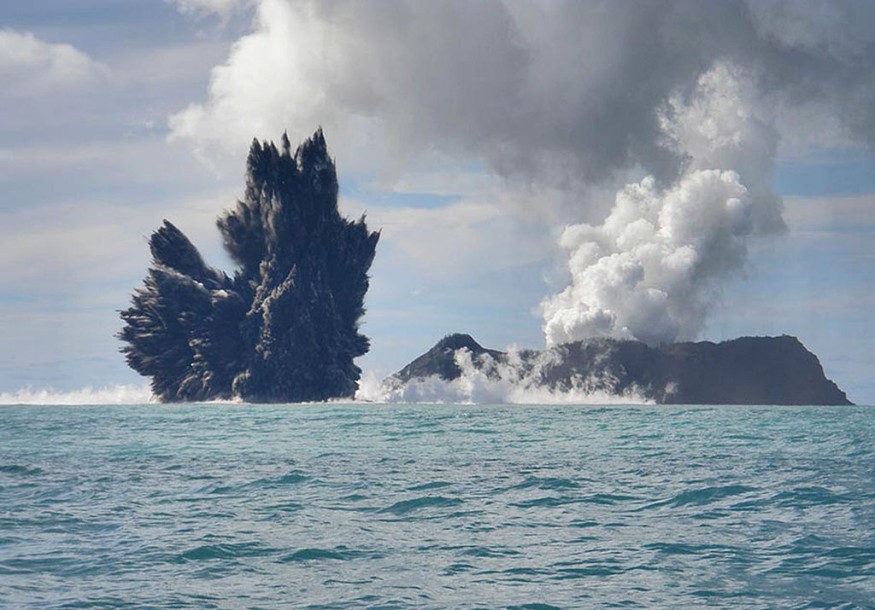Global temperature has risen to over 1.5 degrees Celsius temporarily following the Tonga volcanic eruption last year. This is according to models from a new study that shows such eruption has increased the chance of Earth to further increase its ongoing planetary warming.
In 2022, the Hunga Tonga-Hunga Haʻapai submarine volcano in Tonga erupted on January 15, killing at least 6 people and injuring 19 others, as well as causing severe infrastructural damages in the Pacific Ocean island country. The Tonga volcano emitted ash plumes and rocks which prompted scientists to understand the historic blast.
Tonga Eruption

Over a year later, the Tonga eruption has continued to amaze not only volcanologists but other members of the scientific community. Previous reports said the eruption was so massive it caused seismic wave which travelled across the globe. This is in addition to the tsunami it caused following its eruption.
Scientists have described a large "magma hammer" where they said to had slammed the underside of the Tonga volcano, the BBC reported. The assessment is based on seismic wave analysis which revealed four individual events that are actually molten rock beneath the underwater mountain.
Global Temperature Rise
The new study was published in the journal Nature Climate Change on January 12, where researchers suggest that the impact of the Tonga volcanic eruption will be strong enough to push the average global temperatures indefinitely above the 1.5 degrees Celsius limit, an ideal temperature targeted by the United Nations (UN)-led Paris Agreement back in 2015.
A research team from the University of Oxford, in collaboration with a colleague at the International Institute for Applied Systems Analysis, developed radiative transfer models. The tool aims to help measure global temperature changes in the coming years caused by the Tonga eruption in January 2022.
By using the model, the team found that there is a warming effect of 0.12 Watts per square meter immediately after the volcanic blast. Afterward, the researchers used the data from the model as a basis to a standard climate model to make approximations about such temperature increase in the next 10 years following the eruption, as summarized by Phys.org.
Warming Planet
Prior to the Tonga volcano eruption, Earth has been experiencing significant rise in temperatures for over a century, especially during the onset of the Industrial Revolution between 1750 and 1840. The Industrial Age saw the transition from agricultural, handcraft into manufacturing, machine-driven processes.
In recent years, scientists have warned the reality of climate change and global warming is causing this global temperature rise, often blamed on human activities such as the fossil fuel burning and greenhouse gas emission.
While natural phenomenon like the 2022 Hunga Tonga-Hunga Ha'apai volcanic eruption contributed to atmospheric temperature, the current climate crises that is also responsible for causing global sea-level rise and melting glaciers is mainly perceived to be caused by anthropogenic or human factors.
© 2025 NatureWorldNews.com All rights reserved. Do not reproduce without permission.





